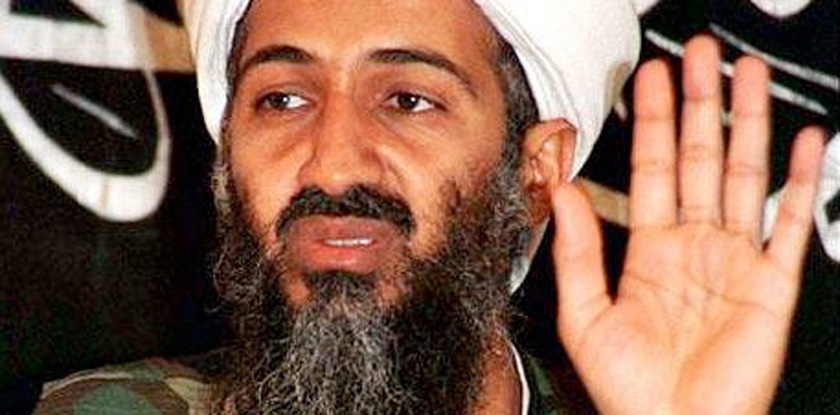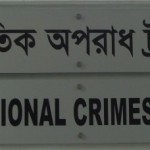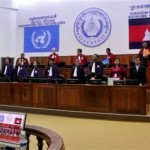the bangladesh war crimes tribunal: reconciliation or revenge?
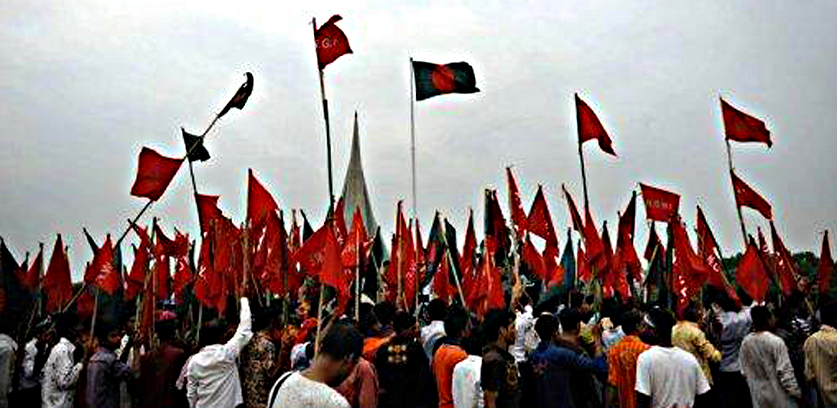
bangladesh war crimes tribunal: a near-justice experience
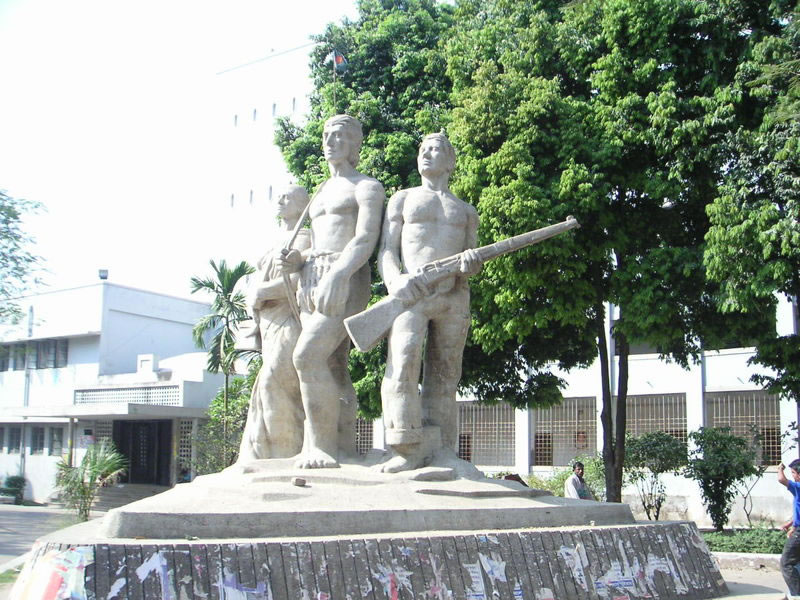
international council of jurists expunges critique

the international crimes tribunal in bangladesh - will justice prevail?

torture: finding our moral compass
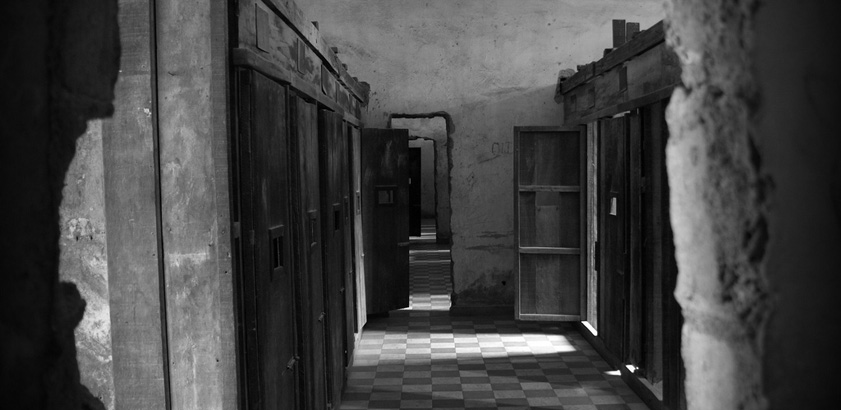
will anyone be held accountable for war crimes in gaza?
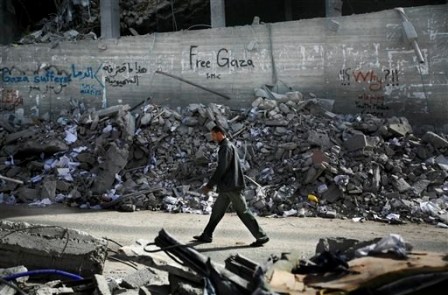
bangladesh: a free and fair war crimes tribunal?
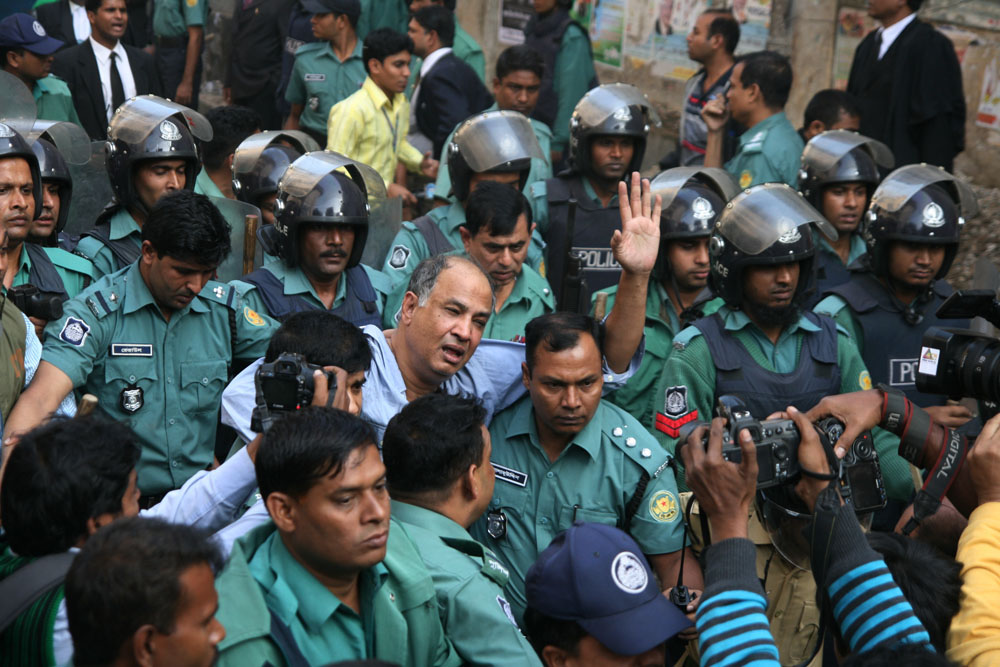


INTRODUCTION TO TERM DEFINITION
A "term" is a key word or phrase related to international humanitarian law. Articles in this category use real world examples to illustrate the application of international humanitarian law terms.
A
Arab-Israeli War: The Second Intifada
B
C
D
G
H
I
International Committee of the Red Cross (ICRC)
Israel's Views of the Application of IHL to the West Bank and Gaza Strip
J
K
L
M
N
NATO and the Geneva Conventions
O
P
Prisoners of War, Non-Reparation of
R
Rwanda: Refugees and Genocidaires
S
T
INTRODUCTION TO LAW DEFINITION
A 'law" is a legal mandate applicable to armed conflict based upon custom, treaty or convention. Articles in this section illustrate the application of international humanitarian law to situations of armed conflict.
A
All members shall refrain from the threat or use of force in their international relations.
The use of force by one State against another, not justified by self-defense or other legally recognized exceptions
The great majority of amnesty laws do take into account the preservation of third-party rights.
Its manifestations included ineligibility from voting, separate living areas and schools, internal travel passes for blacks, and white control of the legal system.
Its objective is to bring a cease-fire that may be indefinite or for a specified time period only.
B
Without belligerent status, a government is not bound to treat insurgents according to the law of international armed conflicts.
The term today is frequently applied to maritime operations undertaken at the behest of the UN Security Council.
C
Air attacks on a city that treat it as a single military objective instead of clearly distinguishing military objectives and areas
The most important rules that apply to all parties to internal armed conflicts
Civilians and civilian objects are protected under the laws of armed conflict by the principle of distinction.
Constant care shall be taken to spare the civilian population, civilians, and civilian objects.
During an armed conflict, only “combatants” are permitted to “take a direct part in hostilities.”
Common Article 3 to the Geneva Conventions
Each Party to the conflict shall be bound to apply, as a minimum, the following provisions.
Includes murder, extermination, enslavement, deportation, and other inhumane acts
As described by the Nuremberg Tribunal in 1946, they are “the supreme international crime."
Customary law is one of the principal sources or components of international humanitarian law.
The customary law of armed conflict summarized into 161 rules
D
Parties must “search for the dead and prevent their being despoiled.”
The laws of armed conflict prohibit executions without a fair trial.
The legality of the secret prisons under international law is highly questionable.
No one may be convicted or sentenced unless he has received a fair trial.
E
Evacuation of Civilians from the Battlefield
It's the soldier's and civilian's responsibility, but it's not compulsory.
G
Genocide is a crime the ICC has jurisdiction over, but its prosecutor has yet to publicly indict any defendants.
Gray Areas in International Humanitarian Law
Conflicts between government and rebel forces can be governed by three sets of rules.
I
A soldier's card must include the person's name, rank, identifying number and date of birth.
International Humanitarian Fact-Finding Commissions
In place since 1991, it is at the disposition of parties to armed conflicts.
International vs. Internal Armed Conflict
Only basic protections are provided for civil war violations in the Geneva Conventions.
Law and interference are fundamentally opposed: If there’s law, then it is not intervention.
A combatant who belongs to a paramilitary group, militia, volunteer corps, organized resistance movement, or rebel force
J
Every State is under the legal obligation to search for and prosecute those in their territory suspected of war crimes.
Under international law, the two distinct ways of looking at war are the reasons you fight and how you fight.
There must be a just cause and right authority to initiate war.
L
Mass uprisings must be distinguished under the laws of war from an insurrection by a people against its own national government.
INTRODUCTION TO CRIME DEFINITION
International humanitarian law (IHL), codified after World War II in the Geneva Conventions, establishes rules for the conduct of armed conflicts and authorizes individual criminal liability for violations. IHL is intended to deter and prevent the unnecessary suffering and damage that results from serious IHL violations, commonly called war crimes. The "Crime Articles" illustrate violations of the laws of war with concrete example from recent armed conflicts.
B
The use of “bacteriological methods of warfare” has been banned under international law since 1925.
Given the right technological expertise biological weapons are cheaper and easier to produce than nuclear weapons.
C
By the 1925 Geneva Protocol, countries can develop and stockpile chemical weapons for “defensive” purposes.
Children as young as 8 are being forcibly recruited, coerced and induced to become combatants.
Many watched their parents be murdered or were forced to kill their loved ones as some sort of perverse initiation rite.
Civilians, Illegal Targeting of
The civilian population as well as individual civilians shall not be the object of attack.
The drafters of the Geneva Conventions had in mind the reprisal killings of World Wars I and II.
Can obedience to superior orders be a defense against allegations of war crimes?
Prisoners, whether POWs or enemy civilians, cannot be forced to serve in military operations.
The laws address the topic piecemeal, and the principal element is unlawful confinement.
Cultural Property and Historical Monuments
The Nuremberg Trials after World War II marked the first time that individuals were held accountable for cultural war crimes.
D
Dangerous Forces: Dams, Dikes, and Nuclear Stations
The traditional laws and customs of war allow the destruction of dams and dikes to stop an enemy’s advance.
If there is enormous loss of life, deportation may constitute genocide.
It often involves torture and cruel and inhuman treatment, and too commonly it involves murder.
No one may be convicted or sentenced unless he has received a fair trial.
E
In war, the protection of the natural environment against widespread, long-term and severe damage is legally ambiguous.
The use of force or intimidation to remove people of a certain ethnic or religious group from an area
Even if it's unclear whether a situation is an armed conflict, human rights law forbids extrajudicial executions.
F
Unlike slavery, forced labor includes no claim of permanent right of ownership over a person subject to it.
My Lai was perhaps the most infamous, if not necessarily the most egregious.
H
Those who are "out of combat" are entitled to be protected, not attacked, and treated humanely.
Hospitals have a special protected status under international humanitarian law.
Civilians may not be taken hostage during times of war.
Humanitarian aid is supposed to be beyond the politics of the war.
I
Parties to a conflict are responsible for all violations of international humanitarian law.
Certain people and places should be protected and respected during wartime.
Imprisonment of Civilian Population
Imprisonment is in violation of the fundamental rules of international law.
Direct and public incitement to commit genocide is punishable.
Both sides must distinguish between the civilian population and combatants and direct their operations only against military objectives.
Individual or mass forcible transfers are prohibited, regardless of their motive.
M
Prisoners of war must be "honorably buried" in graves that bear information about them.
Subjecting prisoners to physical mutilation or scientific experiments is a grave breach.
Medico-Legal Investigations of War Crimes
Investigators should follow the “Minnesota Protocol,” adopted by the UN in 1992.
INTRODUCTION TO REGIONS DEFINITION
Regions
Africa
Lubanga Denies War Crimes in First ICC Trial
January 27, 2009
The former Congolese militia leader pleads not guilty to charges of using child soldiers.
Sierra Leone Rebels Guilty of Crimes against Humanity
February 26, 2009
As the country takes steps toward justice, rebel army officials are convicted of war crimes.
The ICC, Bashir, and the Immunity of Heads of State
March 19, 2009
The ICC has issued an arrest warrant for Sudanese President Omar al-Bashir.
Asia
Cambodian War Crimes Tribunal: First Trial Begins
January 17, 2009
In January 1979, Vietnamese forces entered Cambodia’s deserted capital and came across a disturbing discovery at a site known as Tuol Sleng.
Thousands Flee to Safety in Sri Lanka as Government Closes in on Rebels
February 16, 2009
The UN has condemned a Tamil Tiger suicide attack at a registration center for civilians fleeing the fighting in northern Sri Lanka.
The War Behind Me: Vietnam Veterans Confront the Truth about US War Crimes in Vietnam
March 17, 2009
A letter from Robert Froehlke, secretary of the Army in the early 1970s, arrived in my mailbox a few weeks after the release of my book on U.S. war crimes in Vietnam last year.
Europe
Serbia, Karadzic and the Politics of Justice
August 07, 2008
Former ICTY Official Found Guilty of Contempt
September 17, 2009
The French journalist was convicted of disclosing the contents and effect of two confidential Appeals Chamber decisions in the Milosevic case.
Karadžic Genocide Trial Begins
October 27, 2009
One key concern for the Tribunal will be to avoid a repeat of the most criticized aspects of the Miloševic trial.
Middle East
Are Israel and Hamas Committing War Crimes in Gaza?
January 07, 2009
European leaders have suggested that Israel is guilty of using disproportionate force against Gaza.
January 14, 2009
Some say the white phosphorus smokescreens are being used by Israeli forces in a manner contravening IHL.
Will Anyone Be Held Accountable for War Crimes in Gaza?
February 03, 2009
Since the fighting in Gaza ended, a growing chorus of voices has called for an investigation into war crimes.
North America
President Obama Starts to Take Apart the 'War on Terror'
February 23, 2009
Obama is undoing the most criticized aspects of the counter-terrorism policy of the Bush administration.
Torture Memos Released as Bush Six Face Spanish Indictment
April 23, 2009
The memos describe the harsh interrogation methods sanctioned by the Bush administration.
Spanish Judge Begins Inquiry into 'Systematic' Guantanamo Torture
May 05, 2009
Baltasar Garzón continues his quest to keep U.S. officials accountable for acts of torture at Guantanamo Bay.
Russia / CIS
EU Report Targets Both Sides in Georgia-Russia Conflict
October 14, 2009
The report appears to have answered the question of which side started the war.
South America
Former Peruvian President Guilty of Dirty War Crimes
April 16, 2009
The democratically elected Latin American leader is sentenced to 25 years in prison.
INTRODUCTION TO TOPICS DEFINITION
Topics
Counter Terrorism
Targeted Killings and the Al-Aulaqi Case
November 01, 2010
Some condemn targeted killing as extra-judicial execution, while others accept it as a legitimate method of warfare against terrorists.
Rights
Bangladesh: A Free and Fair War Crimes Tribunal?
August 26, 2010
Though the tribunal has been welcomed in Bangladesh, serious concerns have about its trial standards remain.
Cambodia: What Next for the Extraordinary Chambers?
October 29, 2010
One of the many challenges facing the tribunal is managing expectations of what it can and should achieve.
Targeted Killings and the Al-Aulaqi Case
November 01, 2010
Some condemn targeted killing as extra-judicial execution, while others accept it as a legitimate method of warfare against terrorists.
Terrorism
Targeted Killings and the Al-Aulaqi Case
November 01, 2010
Some condemn targeted killing as extra-judicial execution, while others accept it as a legitimate method of warfare against terrorists.
